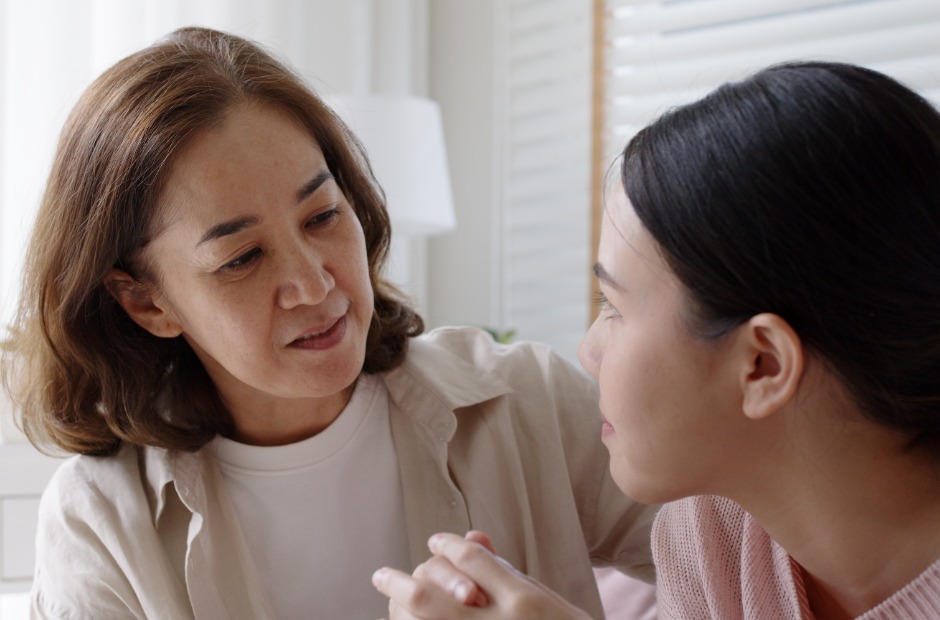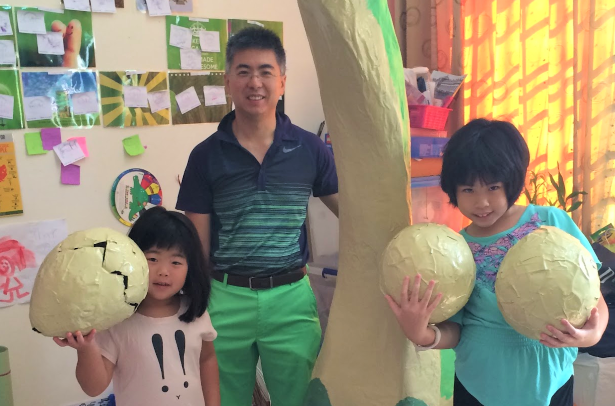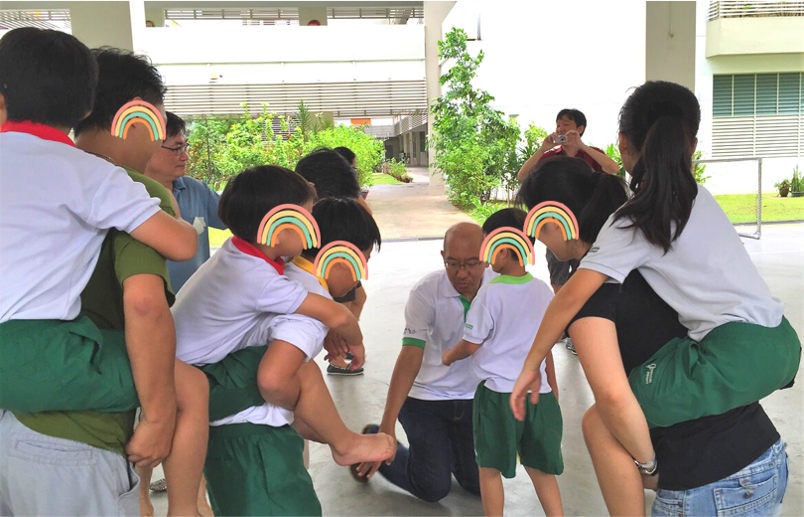Parents and Schools – Partners in Education
28 Apr 2013

Mr Gerald Singham is a father of four and strongly affirms the need for parents to play an active role in their children’s education.
At the start of the school year, MOE welcomed new members to COMPASS: which is the National Advisory Council that advises MOE on ways to strengthen partnerships between families and schools. COMPASS stands for Community and Parents in Support of Schools. Two of the six new members are Mr Gerald Singham and Ms Jane Ng. As parents who have been involved in the education scene for many years, Mr Singham and Ms Ng bring their individual insights and expertise to the council.
Mr Singham, a lawyer, hopes to further COMPASS’s mission by drawing upon his experience as a father of four and leader in community groups such as OnePeople.sg. “I come from a family of educators,” says Mr Singham, who was a member of Pioneer Junior College’s advisory committee for 10 years. “So I also see the teachers’ point of view and the challenges faced by schools. I hope to bring some balance to the discussion.”
Ms Ng is a journalist who has covered the education beat for the Straits Times and Sunday Times for eight years, while also becoming a mother of two. Her son entered Primary 1 this year, and she looks forward to joining his school community through its Parent Support Group (PSG), and also sharing her views on home-school relations in COMPASS.
Sharing his personal take on home-school partnerships, Mr Singham says, “My wife and I see schools as our partners in education.” This means working in concert to tackle issues faced by their children. “Should my child come home and complain about something in school, we never jump the gun and blame the school,” he says. Instead, he seeks to learn the school’s side of the story and ask, “This is how my child feels – how can we together address his concerns?”
By sharing their respective observations, he believes, parents and teachers can cement their partnership for the child’s benefit. For instance, when Mr Singham discovered that one of his sons learned better through visual tools, he told the boy’s teachers, who then knew exactly how to help the boy if he had trouble grasping his lessons. As Mr Singham puts it, “Even if the child doesn’t really like the subject, he will do well because the teacher has managed to deliver that subject in the way that the child can receive it best.”

The new COMPASS members were introduced at a recent lunch for all COMPASS members, with Senior Parliamentary Secretary, Ministry of Education and Ministry of Manpower, Hawazi Daipi (standing), who chairs COMPASS.
Such nuggets, as well as a palpable connection with the pupil, can make a world of difference. “When a child takes well to the teacher, even a difficult subject becomes easy,” he says, citing the example of one of his sons. He had lost interest in the subject History due to a teacher who did little but ask the class to take notes, but was later won over by a new teacher who used vivid stories to deliver lessons.
While teachers do their part to impart knowledge, Mr Singham adds that parents can help by providing emotional support and “creating an environment that encourages learning and the application of that knowledge.” For instance, a visit to the Botanic Gardens can reinforce Science lessons, or he may ask his children to mentally tally the cost of items purchased at a supermarket. “Sometimes, they may get it wrong,” he says, “but the main aim is to show that what they learn in school is of practical use outside.”
Just as vital, in Mr Singham’s opinion, is the role of parents in transmitting basic values such as loyalty to the country, charity, courtesy and care for the environment. “Such values must start at home – the school will reinforce it, but you cannot delegate this task,” he emphasises.
As for what else schools could do, he suggests having more frequent parent-teacher meetings, during which both parties can exchange notes and nip academic as well as behavioural issues in the bud. Regular emails between parents and teachers, sharing simple anecdotes about a child’s good deeds and learning habits, also help and can reveal facets of a child that the parent may not be aware of.

Ms Jane Ng enjoyed being involved in her son’s pre-school and looks forward to being likewise active in his primary school.
Seeking a happy learning environment
Ms Ng also sees the value of keeping the communication channels open between home and school. Describing her involvement in her son’s pre-school as “a positive experience,” she recounts how some parents would conduct a monthly cooking session. “The parents got to know the class and teacher better, and the kids were very happy to see their parents involved,” she reflects.
Becoming an active partner with the school also helps parents to get a better grip on what schools are teaching and how they can support their children’s learning at home. “Kids, especially those in lower primary, like having their parents involved in their schools,” Ms Ng adds.
She believes that COMPASS has a role to play in building effective home-school partnerships and serve “as a valuable resource for parents to tap on.” She explains, “There are parents who want to find out more about educational policies, not just from a policy point of view but from a parent’s or child’s point of view and how it affects them. COMPASS can play a part in bridging that gap between parents and school.”
One issue Ms Ng hopes to address is the primary school rat race. “There are different talents in every child,” she says. “Not getting into the ‘brand name’ schools doesn’t mean the child has failed – it’s not the be-all and end-all.” Explaining her decision to place her son in a ‘neighbourhood’ school near her home, she says, “I didn’t believe in doing volunteer work just to get your kid into a popular school. I have not started him on any academic enrichment lessons either.”
Shrugging off widely expressed opinions, she declares, “People tell me what I’m doing is against the norm and I might regret it later. I’m not sure if I will, but it’s a challenge to stick to my own beliefs in a society where enrichment classes at kindergarten and tuition from primary school is the norm.” What Ms Ng hopes her children will enjoy, ultimately, is a “happy learning environment” where they “continue to curious about everything and find learning interesting and a challenge.”
This rings true with Mr Singham too. Quoting a statement made by Prime Minister Lee Hsien Loong at the 2012 National Day Rally, Mr Singham says that parents and schools can thus jointly help children prepare for “the test of life” rather than “a life of tests.”





